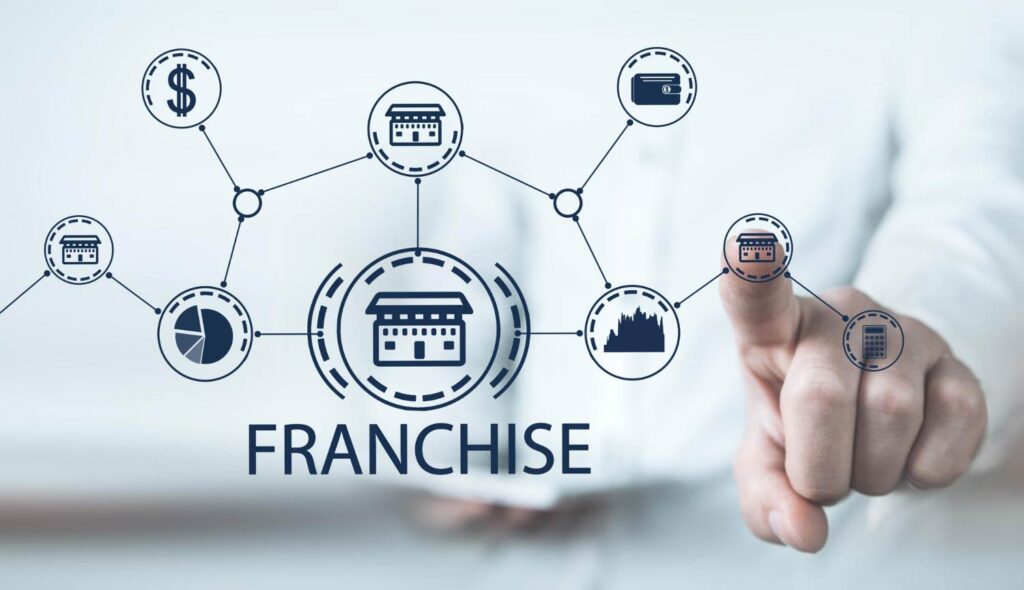In today’s fast-moving market, many people ask: What is a franchise? Is franchising really the fastest way to grow and invest? In simple terms, a franchise or business franchise is a collaboration system between a brand owner and an investor who buys the right to operate the same business model in a specific location, while following clear operational, quality, and marketing standards. This article explains franchising step by step, with practical insights tailored for business owners, traders, restaurant operators, and investors.

Definition of a Franchise (Business Franchise)
A franchise is a legal agreement between:
-
Franchisor: The brand owner or business operator.
-
Franchisee: The investor who is granted the right to use the brand and operating system.
The franchisor provides the brand, operations manual, training, and quality standards. In return, the franchisee pays upfront fees plus ongoing royalties or a percentage of sales. The goal is to ensure that every customer enjoys the same experience in every branch, from product quality to service style and packaging.
Key Components of Any Franchise System
-
Brand and identity: Strong name, clear story, and consistent customer promise.
-
Operations manual (SOPs): Detailed instructions for cooking or delivering services, managing stock, hygiene, and problem-solving.
-
Training and certification: Initial training programs and ongoing reviews to guarantee consistent performance.
-
Site selection and setup: Location criteria, space requirements, design, and customer flow.
-
Marketing: Unified brand-level campaigns plus local flexibility for promotions.
-
Technology and POS systems: Centralized reporting tools, KPI dashboards, and operational monitoring.
-
Compliance and governance: Inspections, quality audits, and penalties for violations.
Why Is Franchising Valuable for Business Owners?
-
Faster expansion with less capital: Franchisees invest in new branches, while you earn fees.
-
Stronger market presence: More outlets increase customer trust in your brand.
-
Supply chain efficiency: Larger volumes mean stronger bargaining power with suppliers.
-
Recurring cash flow: Royalties and monthly/annual fees.
-
Better management: Standardized systems reduce chaos and raise service quality.
Benefits of Franchising for Investors and Entrepreneurs
-
Lower risk: Join a proven business model instead of starting from scratch.
-
Faster breakeven: Thanks to brand recognition and centralized marketing.
-
Continuous support: Training, operations guidance, and brand campaigns.
-
Approved supplier network: Consistent quality and better pricing.
-
Resale potential: Owning a successful franchise unit adds long-term value.
Key Questions Before You Start
-
What’s the total investment (franchise fees, setup, working capital)?
-
How much are royalties and marketing contributions?
-
What are the territory exclusivity terms?
-
What cash flow is needed in the first 6–12 months?
-
What KPIs should be expected (sales averages, profit margins, wastage rates)?
-
What are the contract exit terms, penalties, and renewal conditions?
Common Mistakes to Avoid
-
Relying only on the brand’s name without studying the local market.
-
Ignoring training and SOPs, which destroys customer experience.
-
Cutting the local marketing budget to “save” money.
-
Failing to monitor daily/weekly sales data and delaying corrective action.
-
Buying from unauthorized suppliers to increase margins but losing quality.
Practical Steps to Get Started
For business owners (Franchisors): Assess your readiness, legally protect your brand, create an operations manual tested in at least two branches, define fees and royalties based on a financial model, set franchisee selection criteria, and build audit and support systems.
For investors (Franchisees): Conduct feasibility studies, visit existing outlets and talk to franchisees, test the quality of support, review the contract with a franchise lawyer, and launch with a strong opening plan that includes staff training and local marketing.
Conclusion
Franchising is not just a legal contract—it’s a complete system that helps brands expand faster and gives investors a safer entry into the market. Whether you’re a business owner aiming to scale or an investor looking for a proven opportunity, the franchise business model can be your best step forward if executed properly.
Want to know if your business is ready to franchise, or find the right opportunity to invest in? Contact The Franchise Gate today and book your first evaluation session.
